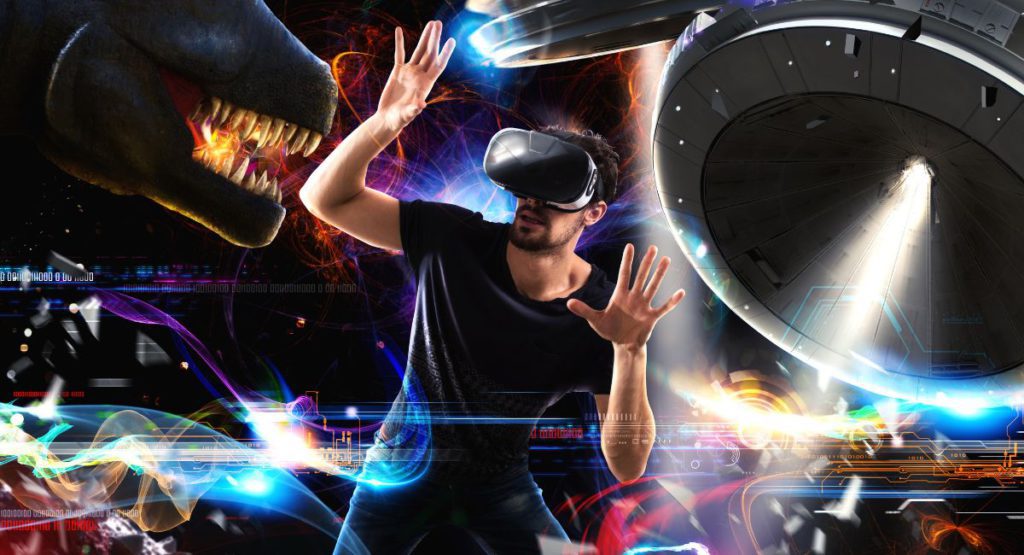The Psychology Of Metaverse Gaming Success: Mindset And Strategies

The metaverse, a collective virtual shared space that spans across the digital world, is rapidly becoming the next frontier for gamers. Within this expansive virtual realm, individuals can immerse themselves in various gaming experiences, social interactions, and economic activities. Metaverse gaming offers a unique and dynamic landscape, where success isn’t just about in-game skills but also the psychology and mindset of the players. In this article, we delve into the psychology of metaverse gaming success, exploring the mindset and strategies that can elevate players to the top of their virtual worlds.
The Mindset of a Metaverse Gamer
1. Adaptability and Open-Mindedness
Metaverse gaming is a dynamic and ever-evolving environment. Gamers must be adaptable and open-minded, willing to embrace new experiences and rapidly changing gameplay elements. A rigid mindset can hinder progress in the metaverse, so staying open to new ideas and approaches is crucial.
2. Persistence and Resilience
Success in the metaverse often involves overcoming challenges and obstacles. Persistence and resilience are essential qualities, as players may face setbacks, failures, or fierce competition. Those who can bounce back from defeat and keep pushing forward are more likely to achieve their goals.
3. Goal-Oriented Mindset
Setting clear, achievable goals is a fundamental part of metaverse gaming success. Whether it’s leveling up, accumulating in-game wealth, or achieving a specific ranking, having well-defined objectives helps maintain motivation and focus.
4. Creativity and Innovation
The metaverse encourages creative thinking and innovation. Gamers who can devise unique strategies, design captivating virtual assets, or pioneer new gameplay mechanics often stand out. Creativity is a valuable asset in this expansive digital landscape.
5. Patience
Some metaverse goals can take time to achieve. Whether it’s waiting for in-game assets to appreciate in value or mastering a challenging skill, patience is a virtue. Players who can wait for the right opportunities and hone their abilities over time tend to excel.
Metaverse Projects and Investments: A Growing Trend
The metaverse is a virtual world that is being built on the blockchain. It is a place where people can interact with each other, play games, and work.
There are a number of metaverse projects that are currently in development.…
— Orabelle (@VKapiu) October 16, 2023
Strategies for Metaverse Gaming Success

1. Research and Learning
Successful metaverse gamers invest time in learning about the games they play. This includes understanding game mechanics, strategies, and the virtual economies that power the metaverse. Gamers should stay informed about game updates, patches, and any changes that might impact their gameplay.
2. Community Building
In the metaverse, social interactions can be as important as gameplay itself. Building a strong network of friends, allies, and fellow players can provide support, insights, and opportunities for collaboration. Joining gaming communities, forums, or guilds can enhance the overall experience.
3. Risk Management
Many metaverse games involve economic transactions, such as buying, selling, or trading virtual assets. Players should employ sound risk management strategies to protect their virtual wealth. Diversifying investments and staying informed about market trends are essential.
4. Continuous Improvement
Regularly assessing one’s performance and seeking ways to improve is crucial. Gamers should aim to enhance their skills, adapt to new challenges, and refine their strategies. Feedback from other players or mentors can be valuable in this process.
5. Time Management
Managing time effectively is vital in the metaverse. Balancing gameplay with real-life commitments is essential to prevent burnout and maintain a healthy lifestyle. Setting boundaries and scheduling playtime can help.
6. Strategic Partnerships
Collaboration can be a powerful strategy in the metaverse. Forming alliances with other players or groups can open up opportunities for collective achievements. Whether it’s raiding a dungeon, building a virtual business, or organizing in-game events, partnering with others can be advantageous.
7. Mindfulness and Well-Being
While striving for success is essential, it’s equally important to maintain a healthy balance. Gamers should practice mindfulness, manage screen time, and prioritize their well-being. Overindulgence or neglecting real-life responsibilities can have adverse effects on mental and physical health.
Also, read – Top 10 Trends in Metaverse Gaming In 2023 Started By Pro Gamers
Metaverse gaming as a Cognitive Playground

The concept of a metaverse, a vast, interconnected digital universe, has moved from science fiction to the forefront of the tech world’s imagination. This expansive virtual realm presents boundless possibilities, from immersive gaming experiences to social interactions, educational platforms, and economic ecosystems. However, the metaverse isn’t just about entertainment or convenience; it serves as a cognitive playground where the human mind can explore new frontiers. In this exploration, we’ll delve into the concept of the metaverse as a cognitive playground and how it is poised to shape the future of human experience.
1. Spatial Learning and Navigation
The metaverse challenges users to navigate complex, three-dimensional spaces. Whether it’s traversing a virtual forest or maneuvering through a bustling digital city, users engage in spatial learning, developing skills in orientation, pathfinding, and mapping. This type of cognitive stimulation can benefit problem-solving abilities and spatial awareness.
2. Creativity and Innovation
In the metaverse, users are creators as much as consumers. Virtual worlds encourage individuals to craft their digital realities, from designing avatars and architectural wonders to coding interactive experiences. The creative process in the metaverse fosters innovation and imagination, tapping into the brain’s potential for artistic and technical expression.
3. Social Dynamics
Social interactions within the metaverse mirror real-life relationships in many ways. Users develop and maintain friendships, negotiate deals, and engage in teamwork, all from behind a digital avatar. The metaverse serves as a fascinating microcosm of human social dynamics, offering a unique arena for understanding group psychology and collaboration.
4. Learning and Education
Educational platforms in the metaverse are redefining how we acquire knowledge. Immersive, hands-on experiences and simulations enable users to grasp complex concepts more easily. It’s a platform for exploring subjects ranging from history to science, making learning a more engaging and interactive process.
5. Economic Decision-Making
The metaverse introduces virtual economies, where users trade, invest, and create value. In these ecosystems, individuals make economic decisions, such as investing in virtual assets or managing digital businesses. These activities parallel real-world economic behaviors and provide an environment for financial learning.
Cognitive Benefits of the Metaverse

While the metaverse offers an array of cognitive challenges and experiences, it also delivers several tangible benefits for the human mind:
- Improved Spatial Cognition: Navigating 3D virtual environments enhances spatial memory and cognitive mapping skills.
- Enhanced Creativity: The freedom to design and create in the metaverse boosts creative thinking and problem-solving abilities.
- Social and Emotional Intelligence: Interactions with avatars in the metaverse develop social skills and emotional intelligence.
- Experiential Learning: Immersive experiences in the metaverse aid in knowledge retention and understanding.
- Entrepreneurial Thinking: Engaging in virtual economies encourages entrepreneurial thinking and financial literacy.
Conclusion:
The metaverse is more than just a digital space; it’s a vast, interconnected cognitive playground. As users explore, create, learn, and interact within its immersive realms, they simultaneously exercise and expand their cognitive faculties. The metaverse provides a unique opportunity for individuals to develop a wide range of cognitive skills and apply them in novel ways. It is, in essence, an arena for the mind to thrive and evolve.
As we embrace the potential of metaverse gaming as a cognitive playground, it’s vital to consider the ethical implications and ensure that these digital experiences are accessible, inclusive, and designed with the well-being of users in mind. The metaverse, as it continues to grow and develop, promises to be a dynamic space where human cognitive capabilities are continually tested, refined, and expanded. It is a realm where the human mind can reach new heights, explore uncharted territories, and redefine the boundaries of what is possible in the digital age.



























































